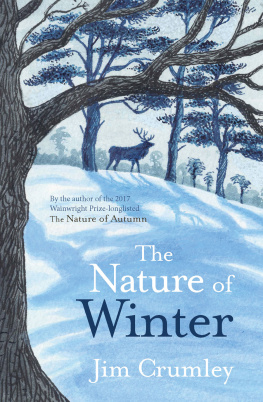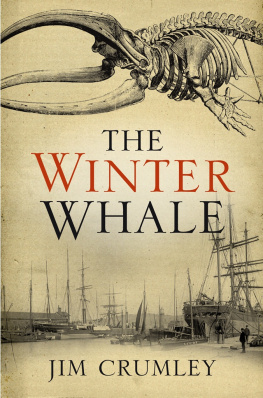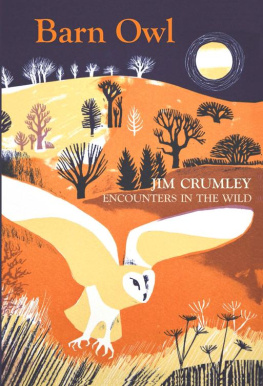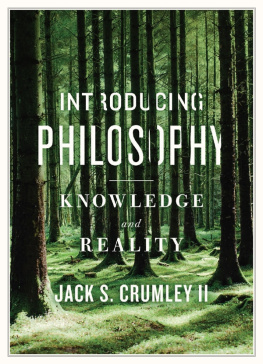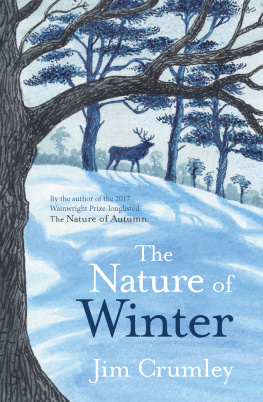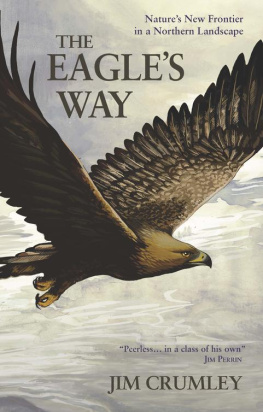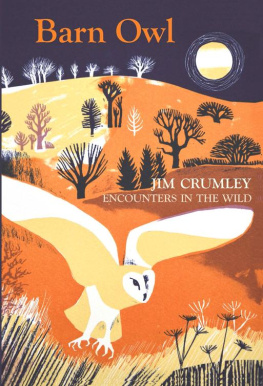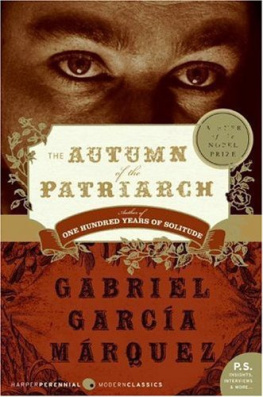Jim Crumley - The Nature of Autumn
Here you can read online Jim Crumley - The Nature of Autumn full text of the book (entire story) in english for free. Download pdf and epub, get meaning, cover and reviews about this ebook. year: 2016, publisher: Saraband, genre: Detective and thriller. Description of the work, (preface) as well as reviews are available. Best literature library LitArk.com created for fans of good reading and offers a wide selection of genres:
Romance novel
Science fiction
Adventure
Detective
Science
History
Home and family
Prose
Art
Politics
Computer
Non-fiction
Religion
Business
Children
Humor
Choose a favorite category and find really read worthwhile books. Enjoy immersion in the world of imagination, feel the emotions of the characters or learn something new for yourself, make an fascinating discovery.

- Book:The Nature of Autumn
- Author:
- Publisher:Saraband
- Genre:
- Year:2016
- Rating:5 / 5
- Favourites:Add to favourites
- Your mark:
- 100
- 1
- 2
- 3
- 4
- 5
The Nature of Autumn: summary, description and annotation
We offer to read an annotation, description, summary or preface (depends on what the author of the book "The Nature of Autumn" wrote himself). If you haven't found the necessary information about the book — write in the comments, we will try to find it.
The Nature of Autumn — read online for free the complete book (whole text) full work
Below is the text of the book, divided by pages. System saving the place of the last page read, allows you to conveniently read the book "The Nature of Autumn" online for free, without having to search again every time where you left off. Put a bookmark, and you can go to the page where you finished reading at any time.
Font size:
Interval:
Bookmark:
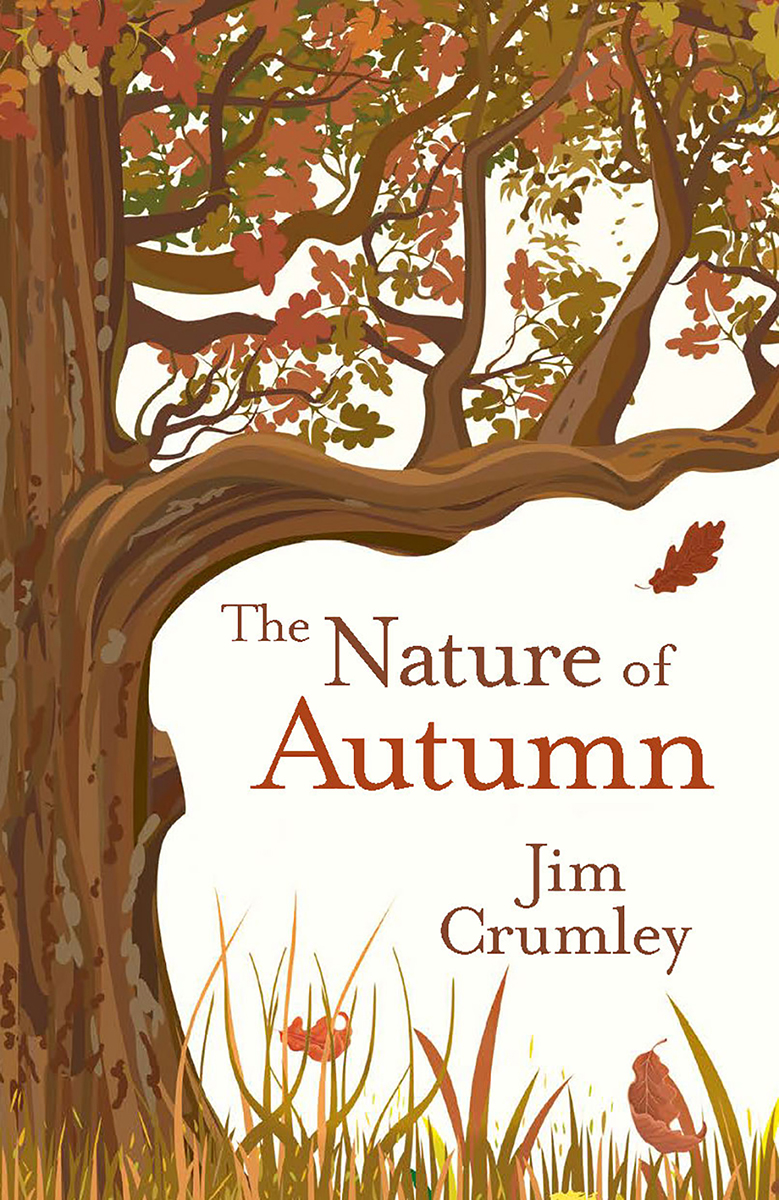
Praise for Jim Crumleys writing
Crumley conveys the wonder of the natural world at its wildestwith honesty and passion and, yes, poetry. Susan Mansfield, Scottish Review of Books
Scotlands pre-eminent nature writer. Jim Perrin, Guardian
Jim Crumley soars with eagles and we watch with our mouths open, not just because the presence of the eagle fills us with awe but the virtuoso writing does, too. Paul Evans , BBC Countryfile Magazine
Crumleys distinctive voice carries you with him on his dawn forays and sunset vigils. John Lister-Kaye, Herald
The best nature writer working in Britain today. David Craig , Los Angeles Times
Enthralling and often strident. Observer
Compulsively descriptive and infectious in its enthusiasm. Scotland on Sunday
Glowing and compelling. Countryman
Every well-chosen word is destined to find its way into our hearts and into our minds and into our imaginations. Ian Smith, The Scots Magazine
Well-written elegant. Crumley speaks revealingly of theatre-in-the-wild. Times Literary Supplement
The Eagles Way was shortlisted for a Saltire Society Literary Award in 2014.
Also by Jim Crumley
Nature Writing
Natures Architect
The Eagles Way
The Great Wood
The Last Wolf
The Winter Whale
Brother Nature
Something Out There
A High and Lonely Place
The Company of Swans
Gulfs of Blue Air
The Heart of the Cairngorms
The Heart of Mull
The Heart of Skye
Among Mountains
Among Islands
Badgers on the Highland Edge
Waters of the Wild Swan
The Pentland Hills
Shetland Land of the Ocean
Glencoe Monarch of Glens
West Highland Landscape
St Kilda
Encounters in the Wild series :
Fox / Barn Owl / Swan / Hare
Memoir
The Road and the Miles
Urban Landscape
Portrait of Edinburgh
The Royal Mile
The Nature of Autumn
Jim
C rumley

Contents
Remember well
James Anderson Crumley
19111975
Part One
September
Chapter One
A Child of Autumn
I was born in midsummer , but I am a child of autumn. One September day in the fourth or fifth autumn of my life there occurred the event that provided my earliest memory, and it is not too extravagant a claim set my life on a path that it follows still. I was standing in the garden of my parents prefab in what was then the last street in town on the western edge of Dundee. An undulating wave of farmland that sprawled southwards towards Dundee from the Sidlaw Hills was turned aside when it washed up against the far side of the road from the prefab, whence it slithered away south-west on a steepening downhill course until it was finally stopped in its tracks by the two-miles-wide, sun-silvered girth of the Firth of Tay at Invergowrie Bay. Then as now, the bay was an autumn-and-winter roost for migrating pink-footed geese from Iceland; then as now, one of their routes to and from the feeding grounds amid the fields of Angus lay directly over the prefab roof.
I can remember what I was wearing: a grey coat with a dark blue collar and buttons and a dark blue cap. So we were probably going out somewhere.
Why am I so sure it was September and not any other month of autumn or winter or early spring? Because it was the first time, and because for the rest of that autumn and winter and early spring, and ever since, the sound of geese over the house any house has sent me running to the window or the garden. So was established my first and most enduring ritual of obeisance in thrall to natures cause. And so I am as sure as I can be that the very first time was also the first flight of geese over the house after their return from Iceland that September; that September when I looked up at the sound of wild geese overhead and also for the first time made sense of the orderly vee-shapes of their flight as they rose above the slope of the fields, the slope of our street, up into the morning sunshine; vee-shapes that evolved subtly into new vee-shapes, wider or longer and narrower, or splintered into smaller vee-shapes or miraculously reassembled their casual choreography into one huge vee-shape the whole width of childhoods sky.
But then there were other voices behind me and I turned towards them to discover that all the way back down the sky towards the river and as far as I could see, there were more and more and more geese, and they kept on coming and coming and coming. The sound of them grew and grew and grew and became tidal, waves of birds like a sea (I knew about the sea by then, for it lived in Arbroath like my Auntie Mary), but a sea where the sky should be, and some geese came so low overhead that their wingbeats were as a rhythmic undertow to their waves of voices, and that too was like the sea.
When they had gone, when the last of them had arrowed away north-east and left the dying embers of the their voices trailing behind them on the air, a wavering diminuendo that fell into an eerie quiet, I felt the first tug of a life-force that I now know to be the pull of the northern places of the earth. And in that silence I stepped beyond the reach of my first few summers and I became a child of autumn.
Now, in the autumn of my life myself, every overhead skein of wild geese every one harks me back to that old September, and I effortlessly reinhabit the body and mindset of that moment of childhood wonder. Nothing else, nothing at all, has that effect. I had a blessed childhood, the legacy of which is replete with good memories, but not one of them can still reach so deep within me as the first of all of them, and now, its potency only strengthens.
It would have been about thirty years ago that I first became aware of the Angus poet Violet Jacob, and in particular of her poem, The Wild Geese . It acquired a wider audience through the singing of folksinger Jim Reid, who set it to music, retitled it Norlan Wind, and included it on an album called I Saw the Wild Geese Flee . I used to do a wee bit of folk singing and I thought that if ever a song was made for someone like me to sing it was that one, but I had trouble with it from the start. My voice would crack by the time I was in the third verse, and the lyrics of the last verse would prick my eyes from the inside. The last time I sang it was the time I couldnt finish it.
Years later, I heard the godfather of Scottish folk singing, Archie Fisher, talking about a song he often sang called The Wounded Whale , and how he had to teach himself to sing it on automatic pilot, otherwise it got the better of him, but I never learned that trick. Even copying out the words now with Violet Jacobs own idiosyncratic spelling, I took a deep breath before the start of the last verse, which is the point where the North Wind turns the tables on the Poet in their two-way conversation:
The Wild Geese
Oh tell me what was on your road, ye roarin norlan Wind,
As ye cam blawin frae the land thats niver frae my mind?
My feet they traivel England, but Im deein for the north.
My man, I heard the siller tides rin up the Firth o Forth.
Aye, Wind, I ken them weel eneuch, and fine they fa and rise,
And fain Id feel the creepin mist on yonder shore that lies,
But tell me, as ye passed them by, what saw ye on the way?
My man, I rocked the rovin gulls that sail abune the Tay.
But saw ye naethin, leein Wind, afore ye cam to Fife?
Theres muckle lyin yont the Tay thats dear to me nor life.
Font size:
Interval:
Bookmark:
Similar books «The Nature of Autumn»
Look at similar books to The Nature of Autumn. We have selected literature similar in name and meaning in the hope of providing readers with more options to find new, interesting, not yet read works.
Discussion, reviews of the book The Nature of Autumn and just readers' own opinions. Leave your comments, write what you think about the work, its meaning or the main characters. Specify what exactly you liked and what you didn't like, and why you think so.

